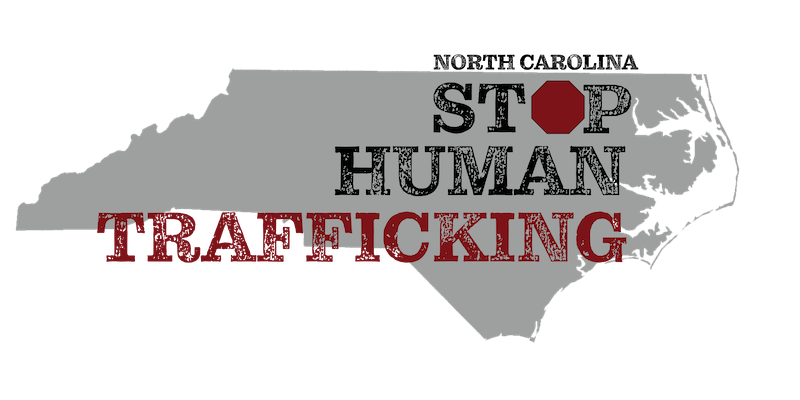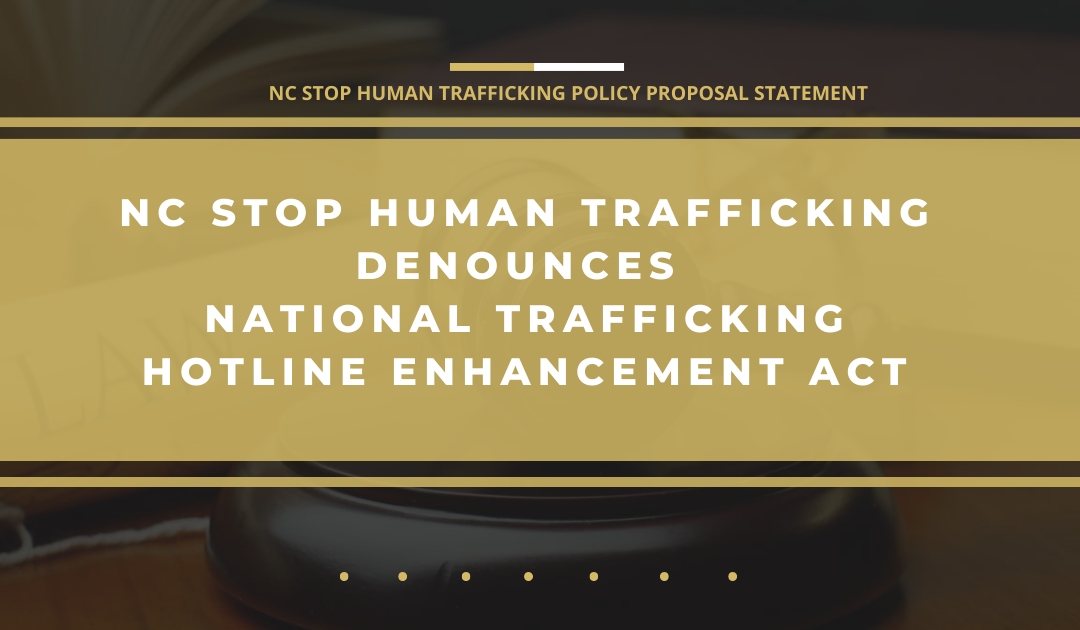NC Stop Human Trafficking denounces H.R. 2601 “National Trafficking Hotline Enhancement Act.”
If this bill becomes law, survivors would discontinue the use of the hotline number to access help.
It would erode the integrity of the National Human Trafficking Hotline in the eyes of survivors, but also with anti-human trafficking advocates, as well
The nature of human trafficking victimization is steeped in manipulation and leveraging the judicial system that — on a dime — can turn against the survivor.
When traffickers compel survivors of human trafficking to perform illegal activities, such as prostitution, larceny, burglary, robbery, drug dealing, and fraud, victims become culpable and in danger of arrest.
Therefore, survivors rarely want to involve law enforcement when escaping from their trafficker.
Fear of arrest is real and legitimate for survivors, and it should be understood that when law enforcement can access the hotline tip information upon request, victims will stop dialing in for help.
It is also important to note that in some cases of sexual exploitation and sex trafficking, law enforcement officers are the sex buyers or they lack the will to assist survivors and will simply arrest them.
If survivors of human trafficking wanted to involve law enforcement in their exit from their trafficking situation, they would simply call them instead of contacting the hotline number.
Once they are safe and have had time to process their trauma, some survivors are willing to assist law enforcement in investigations.
Currently the National Human Trafficking Hotline reports to law enforcement when the victim is under the age of 18 and upon the request/approval of the survivors themselves.
This is a sound policy. They currently operate on a person-first basis and not criminal justice first, and that is appropriate to provide the best care to those who are seeking escape.
If we want the National Human Trafficking Hotline to be useful to survivors, enacting this policy would be a mistake that would further push survivors in the shadows and more traffickers would go on without being held accountable.
The bill is most likely intended to access information to assist in prosecuting traffickers. Unfortunately, that will almost certainly not be the result, since survivors will no longer perceive the hotline to be a trustworthy, confidential source of assistance.
Survivors will lose a valuable resource, and little to no information will be gained to assist investigations if this bill is passed.

